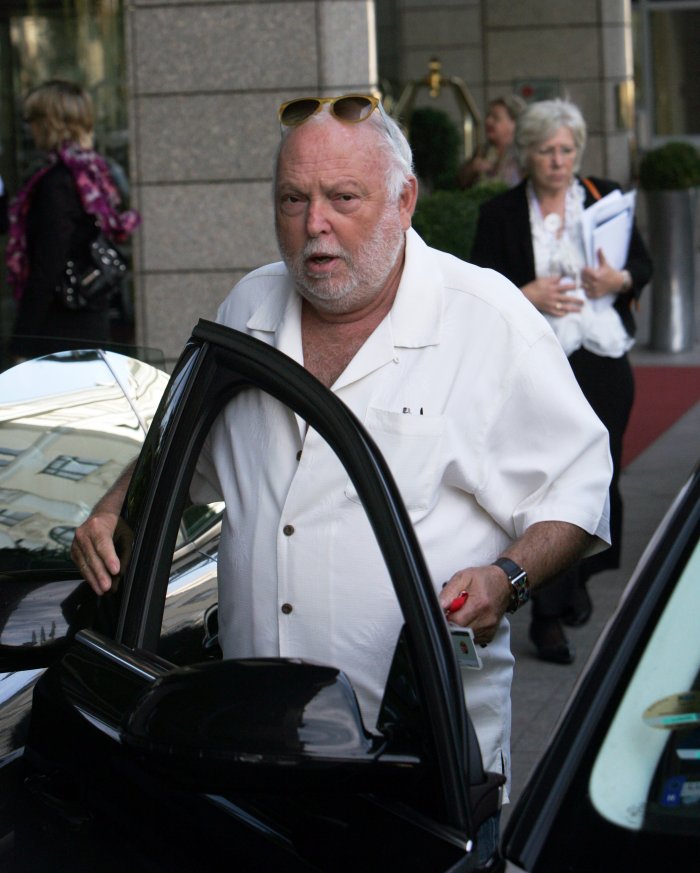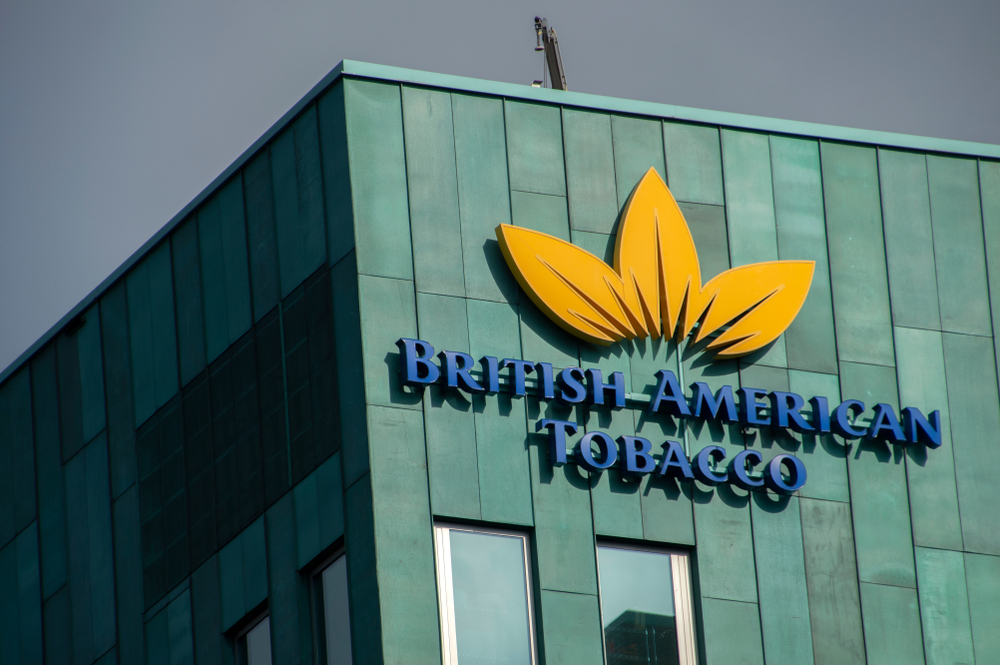Budapest and Back, via Alberta, Hong Kong and Hollywood

Northfoto/Shutterstock.com
Refugee, photographer, hairdresser, wig maker, motion-picture producer and film commissioner; Andy Vajna, who died in Budapest on January 20, aged 74, had been there and got the T-shirts.
Andy Vajna getting into his car outside a Budapest hotel, September 29, 2011. Photo by Northfoto/Shutterstock.com.
As a kid in the Hungarian capital during the early 1950s, András Vajna was, in his own words, “the hottest thing on the block”.
“I used to get the greatest toys for Christmas from my aunt in Los Angeles. Everyone would come and play with my toys.” So when, during the 1956 Uprising, family talk came to fleeing Hungary, the favored destination was obvious.
“I wanted to go where those toys were being made,” he told journalists of the Hungarian International Press Association at their annual dinner in February, 2012.
Vajna left, aged 12, and made it to Vienna (see box), but as an unaccompanied minor, was refused entry to the United States.
“I looked at the map, at what was the closest to Los Angeles, and ended up in Edmonton Alberta,” where a Hungarian family fostered the boy.
Vajna was soon able to reunite with his parents, who had meanwhile escaped to the fabled California. Vajna studied at film school, but soon launched his own career, becoming a photographer, hairdresser, then wig producer, with 3,000 employees in Hong Kong.
A Life in Film
Selling that business, in 1973, he began his life in films, buying cinemas in Hong Kong before turning to movie production. After the international success of “Rambo: First Blood” in 1982 (see sidebar) Vajna went on with the sequel, which grossed USD 300 million worldwide.
Along with the Rambo series, his most notable films include “Terminator 3: Rise of the Machines” and “Evita”. Numerous sources report his association as a producer with up to 59 films (although his Wikipedia page details “only” 42).
Life in Hollywood was turbulent, however: Vajna’s companies and his business associate Peter Hoffman were involved in long-running U.S. Federal Tax investigations around the turn of the millennium.
Vajna maintained links with the land of his birth for much of his life, and was instrumental in getting movies like “[Escape to] Victory” shot in Hungary as early as 1981. Contacts increased after 1989, when he moved into film distribution, and famously produced the record-breaking Hungarian comedy “A miniszter félrelép” (“Out of Order”) in 1997.
In 2011, Prime Minister Viktor Orbán appointed Vajna as government film commissioner, with instructions to reform the Hungarian film industry. Despite the concerns of many critics, his term as industry chief produced notable successes, including the Oscar-winning “Son of Saul” in 2015.
Vajna took no salary as commissioner, although the Orbán government awarded him the lucrative concession for Budapest’s casinos and a monopoly on the online betting market. He was also provided with state-backed loans to purchase the struggling broadcaster TV2 in 2015.
Forbes Hungary ranked Vajna the 18th richest Hungarian last year, with an estimated wealth of HUF 67.3 billion.
András György Vajna (known as Andy), born August 1, 1944, died January 20, 2019.
Vajna on Fleeing Hungary in 1956
“I was 12, leaving with neighbor’s kids, my friends. I was supposed to be in Vienna that night. I arrived three days late, ’cos we were hiding in some stable ’cos the drunken guy who was supposed to take us across had no idea which way Austria was,” Vajna recalled in 2012.
“I was the youngest in the group, so I was given the task of getting food for everybody, ’cos they figured they wouldn’t shoot me. I made it to Vienna, where, through Radio Free Europe we would send messages back to our parents that you had made it. My mother waited up three nights, and then kind of gave up. By the time I sent my message, she wasn’t listening. She went to bed that evening a beautiful blonde, and woke up next morning with white hair.”
Vajna on Stallone and how Rambo Almost Never got Released
The making of “First Blood: Rambo”, Vajna’s first foray into movies as an executive producer, was long and tortuous, though exactly why depends on who tells the story.
Vajna, speaking to the Hungarian International Press Association, in February 2012, said he and business partner Mario Kassar hired Sylvester Stallone for USD 3 mln for the lead. It was 1982, and though famous after “Rocky”, for the U.S. actor “Rambo” was still a big deal.
Signed and apparently sealed, Vajna was in Mexico on a location search when Stallone called: he was backing out.
“His agent and friends had asked him: why are you doing this movie about a Vietnam vet who kills everyone? They are gonna hate you! Don’t do this movie!”
Vajna and Kassar flew to Los Angeles to “to get him back on board”, suggesting Stallone re-write the script.
“We paid him $300,000 for the rewrite. I think he changed about two pages, but he thought he’d rewrote it.”
It was enough. “His friends then couldn’t say the script was terrible, so they loved it. We made the movie,” Vajna recalled. The tribulations, however, were far from over.
“We finished shooting; lots of problems. We cut this film together, and I saw 3 hours 20 minutes of “Rambo”. It was a disaster.” Worse still, “Sly insisted on seeing it”, and Ted Kotcheff, the director, obliged.
“Next morning I get a call from his agent saying we’d destroyed Sly’s career. ‘I wanna buy the movie back. We’ll give you USD 9 mln’.” Having spent USD 13 mln making the film, Vajna balked.
“I mean, I lived in an apartment for USD 100 a week. How could I lose USD 4 mln? We said ‘No: we’ll re-cut it’.” So Vajna and Kassar produced a 50-minute version for the trade.
“We had a screening scheduled, with 400 top buyers from all over the world, and I had to cajole Sly. ‘Come on, you’ve got to see the movie’. He said: ‘You’re out of your mind,’ … but anyway, he came. We sat him down in the theater: packed. Fifty minutes [later], and the movie gets a standing ovation. Within ten minutes, we’d sold it to the entire world.”
“Rambo: First Blood: Rambo” went on to gross USD 125 million at the box office.
SUPPORT THE BUDAPEST BUSINESS JOURNAL
Producing journalism that is worthy of the name is a costly business. For 27 years, the publishers, editors and reporters of the Budapest Business Journal have striven to bring you business news that works, information that you can trust, that is factual, accurate and presented without fear or favor.
Newspaper organizations across the globe have struggled to find a business model that allows them to continue to excel, without compromising their ability to perform. Most recently, some have experimented with the idea of involving their most important stakeholders, their readers.
We would like to offer that same opportunity to our readers. We would like to invite you to help us deliver the quality business journalism you require. Hit our Support the BBJ button and you can choose the how much and how often you send us your contributions.









